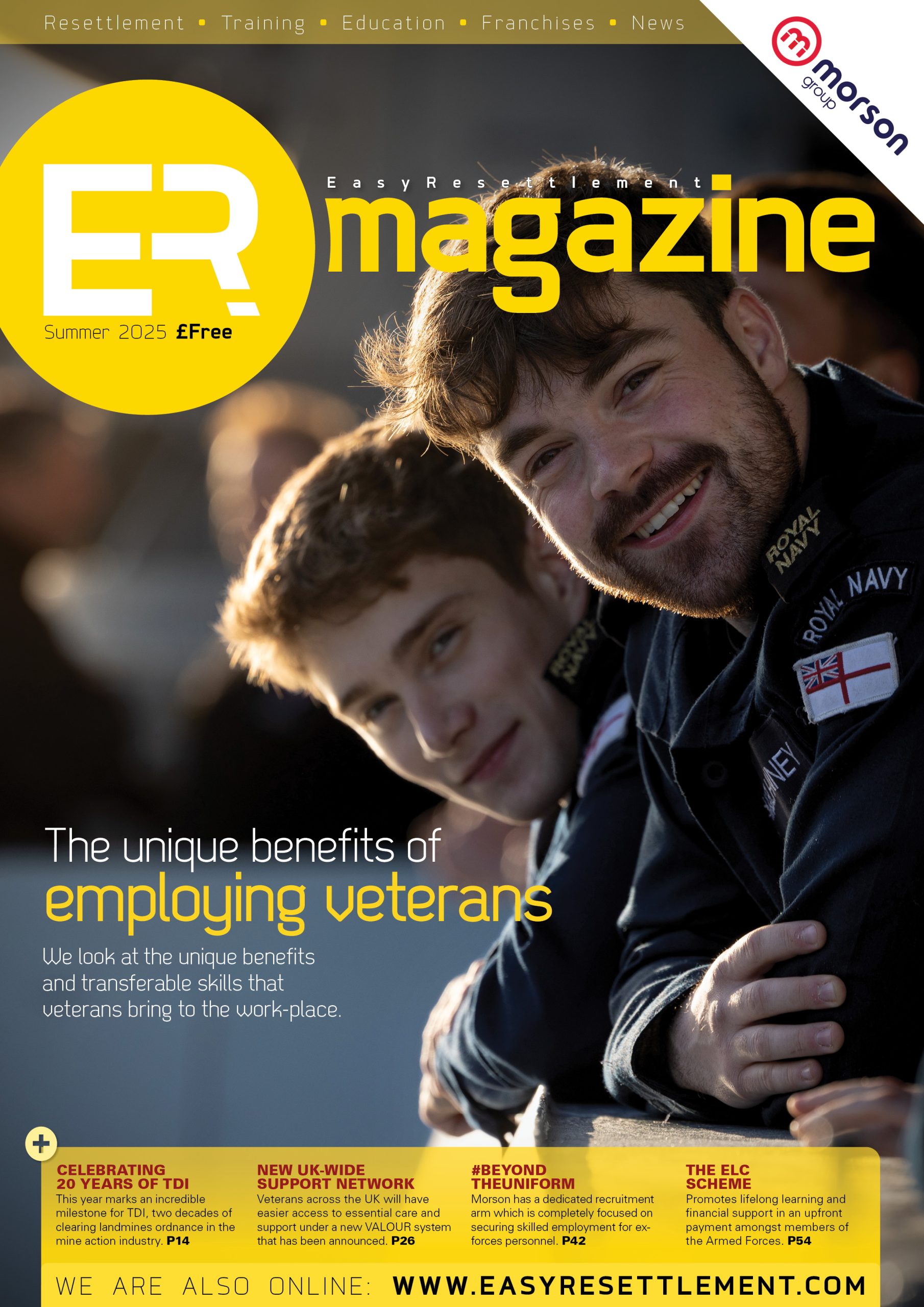A Safe & Secure Future
There is no shortage of opportunities for good and reliable ex-service personnel in the security industry. And according to an industry leader, Major Frank Quigley, the transferable skills gained in the services can be invaluable to a potential employer.
A former Military Policeman, Major Quigley opted for a career in manned security rather than follow many of his contemporaries who joined the corporate side of the business. He is now managing director of Guarding UK, one of the fastest growing businesses in the sector.
He said: “This is where the opportunities are. The security business is over four times the size of the British Army and its growing.
I would recommend security as a career opportunity for anyone leaving the forces but would add that a change of culture is required. While most of the skills gained in the services are invaluable it requires some flexibility in working hours which are not as regulated.”
Major Quigley also stresses the importance of choosing a company that is registered with the Security Industry Authority.
The Security Industry Authority is the organisation responsible for regulating the private security industry. It is an independent body reporting to the Home Secretary. Its mission is to regulate the private security industry effectively; to reduce criminality, raise standards and recognise quality service.
The SIA has two main duties. One is the compulsory licensing of individuals undertaking designated activities within the private security industry; the other is to manage the voluntary Approved Contractor Scheme, which measures private security suppliers against independently assessed criteria.
The industry is divided into specific disciplines; Manned Guarding which includes Cash and Valuables in Transit, Door Supervision, Close Protection, Public Space Surveillance and Security Guards. The other areas are Immobilisation, restriction and removal of vehicles and Key Holding.
Each section has its own specific license. Licensing ensures that private security operatives are ‘fit and proper’ persons who are properly trained and qualified to do their job.
The SIA states that it is essential that individuals working in the private security industry undergo a structured training programme that results in a recognised qualification.
A spokesman said: “We have developed a competency (skills) requirement as part of our licensing function. Individuals applying for a front line SIA licence must prove that they are properly qualified to do their job. If they don’t hold one of the SIA-endorsed qualifications then their licence application will be refused.
We believe that this will result in a more competent and professional workforce. It will also improve the public image of the private security industry and make it more attractive to potential employees.”
Some previously existing qualifications in security-related disciplines may allow exemption from all or part of the SIA approved training.
The SIA approach is to:
- Maintain core competency specifications that meet the needs of the private security industry and are based on industry best practice.
- Consult with key stakeholders to continuously improve the standards of both training and qualifications.
The competencies specified by us cover the core activities of vehicle immobilising and manned guarding. We accept that there may be competencies relating to more specific activities that we have not covered. We have identified the skills that an individual must have in order to obtain an SIA licence: this does not prevent them from undertaking further training if they wish or if the specific nature of their role requires it.
Unless an employer has been given an exemption it is a criminal offence to undertake licensable security activities without an SIA license.
Awarding authorities offering suitable qualification courses include Edexel, NOCN, HABC, City and Guilds and Buckinghamshire New University. There are many others too, all listed on the SIA website with clear descriptions of the requirements for every qualification.
Major Quigley points out that Close Protection also requires licensing but most of this activity takes place outside the UK. He concluded: “Qualified security guards can now earn good salaries. The opportunities are there for those prepared to work and three UK universities are now offering graduate courses in security.”
Further information on requirements and qualifications in security is available on the SIA website www.sia.homeoffice.gov.uk
There are also numerous opportunities for the technically minded and suitably qualified among the security equipment and technology manufacturers and providers. This covers everything from access control, asset and property marking to CCTV and the most sophisticated civil aviation security technology.
The private security industry in the UK is a vibrant and ever-evolving industry, encompassing a wide range of sectors that make a daily contribution to UK society. From electronic security technologies such as CCTV and intruder alarms, through to physical security measures and security guarding, our daily lives are now entwined with security measures in many forms.
The industry body, The British Security Industry Association estimates that the growing security systems industry is valued at over £654 million.
- BSIA member security guarding companies employ 75,500 security officers.
- There are an estimated 4.25 million CCTV cameras installed in the UK.
- The total turnover of BSIA member companies is £4.33 billion.
- The total turnover of BSIA security guarding companies is £1.575 billion.
also contains information on SIA recognised training facilities.

